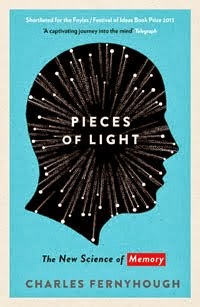In a recent interview I was asked whether a background in developmental psychology was of any advantage when it came to working out the right and wrong ways to bring up children. 'Far from it,' was the gist of my reply. The Baby in the Mirror is not a parenting book, not least because I have no idea what makes a good parent. I know what makes an abusive one, or a loving one, and I have a pretty good idea about what kinds of stimulation of children's minds can be beneficial at different ages. But to suppose that knowledge of the science is a foundation for training perfect parents is, to my mind, a dangerous way to go.

Nowhere is this demonstrated more effectively than in Christina Hardyment's wonderful Dream Babies: Childcare Advice from John Locke to Gina Ford. I read this book in its first, 1983 edition, and found myself wondering what Hardyment would have made of more recent attempts to construe parenting as a process that could be scientifically validated and enhanced. It was a pleasure, then, to see that the book was being reissued with additional material covering almost a quarter-century of new research. Hardyment's story starts with eighteenth-century attempts to turn Enlightenment ideas to use in child-rearing, guides us through a nineteenth-century fad for phrenology and the dawn of sustained scientific interest in developing minds, and concludes with a look at current oppositions between super-strict and ultra-liberal methods of baby control. By offering us such a broad historical sweep, Hardyment gracefully demonstrates how one generation's solemn orthodoxy becomes the next's flaky dogma. The long view points up the cycles and recurring patterns of thought on the subject, and inevitably makes us question how our own cherished beliefs about childcare will look from the perspective of the future. In her words, 'techniques of handling children have not made the steady progress towards improvement that some historians of childhood assert: they have always been tailored, sometimes attractively, sometimes unpleasantly, to suit the times.'

Nowhere is this demonstrated more effectively than in Christina Hardyment's wonderful Dream Babies: Childcare Advice from John Locke to Gina Ford. I read this book in its first, 1983 edition, and found myself wondering what Hardyment would have made of more recent attempts to construe parenting as a process that could be scientifically validated and enhanced. It was a pleasure, then, to see that the book was being reissued with additional material covering almost a quarter-century of new research. Hardyment's story starts with eighteenth-century attempts to turn Enlightenment ideas to use in child-rearing, guides us through a nineteenth-century fad for phrenology and the dawn of sustained scientific interest in developing minds, and concludes with a look at current oppositions between super-strict and ultra-liberal methods of baby control. By offering us such a broad historical sweep, Hardyment gracefully demonstrates how one generation's solemn orthodoxy becomes the next's flaky dogma. The long view points up the cycles and recurring patterns of thought on the subject, and inevitably makes us question how our own cherished beliefs about childcare will look from the perspective of the future. In her words, 'techniques of handling children have not made the steady progress towards improvement that some historians of childhood assert: they have always been tailored, sometimes attractively, sometimes unpleasantly, to suit the times.'
Of particular interest to me is Hardyment's tracing of the influence of certain key cognitive-developmental theorists. Alongside Freud, Hardyment rates the work of Jean Piaget as the greatest influence on the Spock-era baby manuals that held sway after the Second World War. As much as they were concerned with physical and moral development, parents were concerned that their charges should keep up intellectually, and Piaget had by far the most complete theory of cognitive development on offer. His views on the development of the object concept, for example, led to suggestions that object permanence could be trained by peekaboo games and other adventures in object occlusion. If intellectual development was a process, it was a process that could be speeded up. The flashcard parent was born.
I have plenty of time for Piaget's theories, but translating them into childcare prescriptions misses the point of his claims about the logical ordering of certain cognitive advances. The developing brain requires stimulation, but it needs to be targeted (for a neuroscientifically sound attempt to sketch out what this might mean for parents, I recommend Lise Eliot's What's Going On In There? How the brain and mind develop in the first five years of life). Efforts to boost input beyond what is naturally available are likely to be fruitless, if not actually harmful. Science deals in generalities, while parents have to get to know particular children with their own particular combinations of personality traits and cognitive biases. There is also something profoundly unscientific in claiming that a certain technique for toilet-training or sleep control has 'worked', rather than having simply coincided with a developmental change which would have happened anyway. The truth is that the large-scale, scientifically rigorous studies that would prove the efficacy of such techniques have for the most part not been done, and may never be. All of this is a roundabout way of explaining why I was so concerned not to try to write a parenting manual. Such books often patronise parents, while playing on their anxieties about being seen to be active co-travellers in the miraculous journeys that their children are embarked on. If Athena and Isaac did turn out all right, it is not me who should be puffing up with pride.





No comments:
Post a Comment